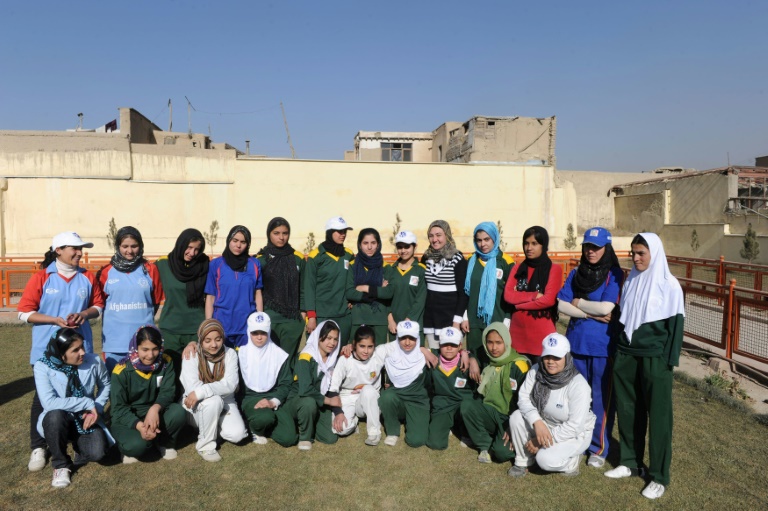
PERTH (AUSTRALIA) - While cricket fans in Afghanistan excitedly prepare for the World Cup in India, most of the country's women players are in limbo abroad.
Since the Taliban regained control of Kabul in August 2021, the country's new rulers have reintroduced their strict interpretation of Islam, gradually squeezing women out of public life and barring their participation in sport.
In the days leading up to the Taliban takeover -- and the weeks and months that followed -- most of the national women's team fled abroad, many settling in Australia.
Members of the women's side said they left after being threatened for taking part in activities that brought "dishonour" to their faith, country or families.
It was a crippling blow to the women's game in Afghanistan, which was just beginning to show signs of promise.
"Afghan society was not ready to accept women's cricket," former long-time Afghanistan Cricket Board (ACB) chief Shafiq Stanikzai told AFP of the early days.
"We had to teach society that they had to accept women's cricket... that women can get out of home and play cricket."
Promoting the women's game has been a key condition for membership of the sport's governing body, the International Cricket Council (ICC), but so far Afghanistan has escaped sanction.
Afghanistan gained full ICC membership in 2017, two years after making the World Cup for the first time as an associate nation.
The coveted status meant more funding and influence through a seat on the all-powerful ICC board -- only 12 nations have full membership -- but it also came with strict criteria to develop the women's game.
An initial exemption was invoked as long as Afghanistan took steps to develop women's cricket, leading to central contracts for 25 players.
But those small steps have ended under the new Taliban government.
- 'Don't forget us' -
For a while, debate raged over whether Afghanistan should be sanctioned and its ICC membership revoked -- effectively banning the men's team from playing international cricket.
"You cannot exclude half the population," Human Rights Watch global initiative director Minky Worden told Sky Sports News.
"The ICC should be communicating that the Taliban has made a decision that is in violation with its anti-discrimination policy."
In January, Australia pulled out of a 50-over series against Afghanistan scheduled in the United Arab Emirates, citing the Taliban authorities' restrictions on women's rights.
"We did not take this decision lightly and consulted widely -- including with our government," Cricket Australia chief Nick Hockley said at the time.
But so far Cricket Australia has been the only full ICC member to take such a stance.
Although records show cricket being played in Afghanistan more than a century ago, most of the country's top players learnt the game in refugee camps in Pakistan.
The Taliban banished most sport during their first period of rule from 1996 to 2001 -- or there was little enthusiasm for it.
This time around, however, the Taliban authorities appear to have embraced the game, with senior leaders frequently seen at local matches or posting about the national team's success on social media.
Sources say an ICC working group on Afghanistan has determined the Taliban authorities are not interfering with the national board.
"The ICC will not penalise the ACB, or its players for abiding by the laws set by the government of their country," an ICC spokesperson said.
"We will continue to constructively use our influence to assist the ACB in developing cricket and playing opportunities for both men and women in Afghanistan."
As part of the ICC's new revenue distribution model, the ACB is set to receive about US$17 million a year from 2024-27 -- more than triple its current funding allocation.
But these extra funds appear unlikely to be used to help restart women’s cricket in the country.
"I do not want the ICC to forget us or forget the girls in Afghanistan that still have hope of playing cricket," Afghanistan all-rounder Nahida Sapan told the BBC.
"There are a lot of girls in Afghanistan who dream of becoming cricket players."
In the meantime, the Afghanistan men's team begin their World Cup campaign in India on Saturday against Bangladesh.